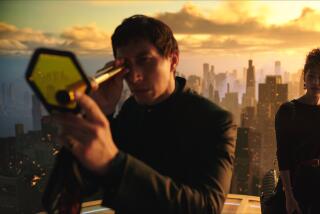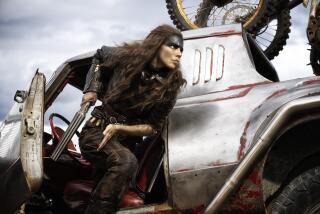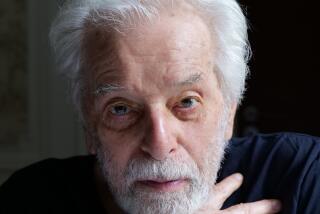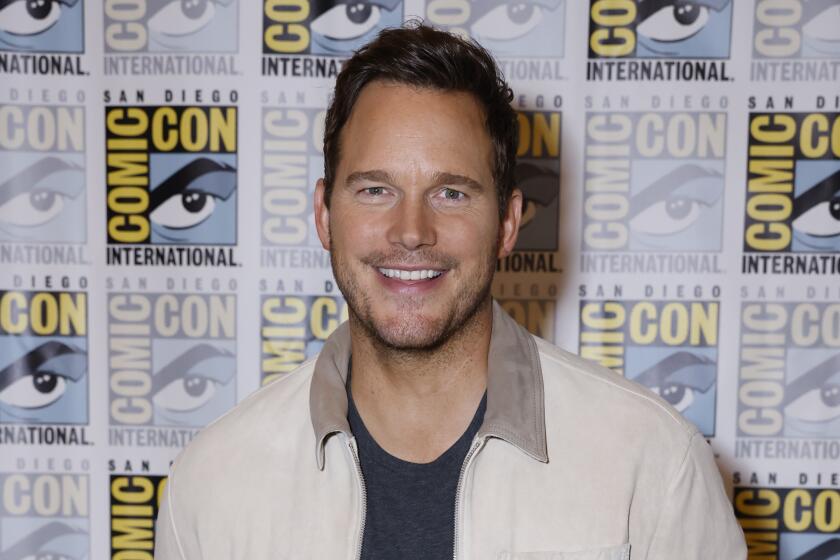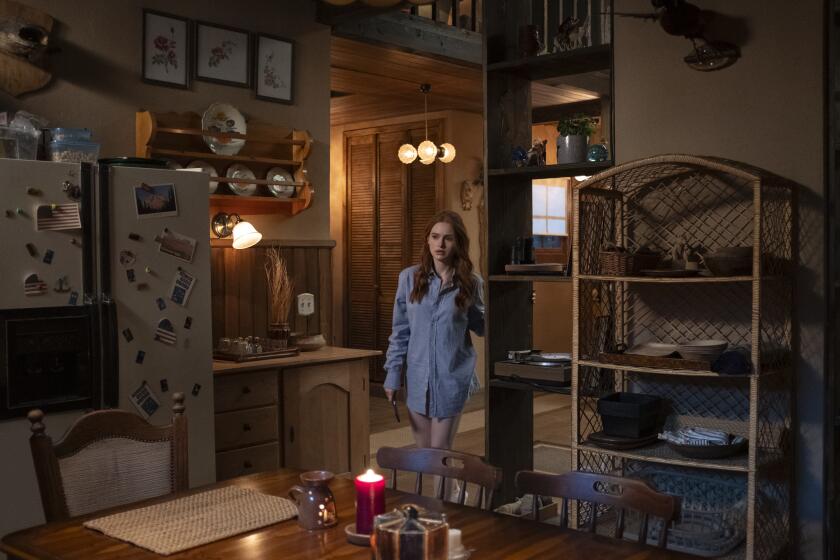Political Movies: Some Top Candidates
Politics may not be America’s favorite game anymore--heck, we’re lucky if half the voters turn out for an election--but it continues as a chief source of inspiration for Hollywood.
That shouldn’t come as any great surprise; whether we vote or not, politics and the people who practice it affect our lives daily. And Americans, historically, have taken great pride in their electoral process. We may not always like the results, but how many other cultures can say they’ve been choosing their leaders in pretty much the same way for better than two centuries--with nary a coup to blot the record?
Maybe the opening of “The Contender,” starring Joan Allen as a vice presidential nominee determined not to let charges of sexual impropriety bring her down, has got you yearning for other movies about the great game of politics. Here are 12 films, dating back to the 1930s, that should fill the bill. All are available on video, and most turn up regularly on TV.
*
“Mr. Smith Goes to Washington” (1939)
The film that made Jimmy Stewart a star almost got director Frank Capra kicked out of Washington, where members of Congress didn’t appreciate the suggestion that not all of them were paragons of virtue. Rube senator Jefferson Smith (Stewart), fresh off the turnip truck, puts his health and career on the line for the sake of a boys’ camp back home; Claude Rains is the sinister senior senator who sells Smith and the boys out. The film that taught America what a filibuster is.
*
“All the King’s Men” (1949)
Broderick Crawford won an Oscar for his blustering portrayal of Willie Stark, the most powerful--and dangerous--man in Louisiana. Any similarities to the real-life story of Louisiana demagogue Huey Long, who was assassinated in 1935, are entirely the point.
*
“The Last Hurrah” (1958)
John Ford directed this adaptation of Edwin O’Connor’s novel about an aging old-school politico (Spencer Tracy, in a film he thought--wrongly--would be his last) charting his way through yet another mayoral campaign. A relic of the days when being a political boss was still thought of as a good thing.
*
“Primary” (1960)
This pioneering cinema verite documentary from Richard Leacock and Robert Drew charts the 1960 Wisconsin Democratic primary, as John F. Kennedy and Hubert Humphrey do battle. The film seems older than it really is. It’s in grainy black-and-white, focuses on candidates who don’t talk only in sound bites and suggests that these are real people running for office, not cardboard figures molded by media consultants. (For a more recent counterpoint, check out D.A. Pennebaker and Chris Hegedus’ “The War Room,” a behind-the-scenes look at Bill Clinton’s 1992 presidential campaign.)
*
“The Best Man” (1964)
True-blue Henry Fonda and weaselly Cliff Robertson compete for the presidential nomination in this biting political commentary from screenwriter Gore Vidal, adapting his own book. Both candidates have dirt on the other. Robertson has no problem using it to gain the advantage, while Fonda’s moral compass keeps him from the dark side. Legend has it that Fonda’s character was based on Adlai Stevenson, Robertson’s on Joe McCarthy (or Richard Nixon).
*
“Seven Days in May” (1964)
The Cold War prompted something of a golden age of political thrillers, and here’s one of the best. Head of the Joint Chiefs of Staff (Burt Lancaster), outraged that the president (Fredric March) has signed a nuclear disarmament treaty, conspires to stage a coup d’etat. When his aide (Kirk Douglas) finds out about it, he warns the president, and the cat-and-mouse game begins. Another gem from director John Frankenheimer, just two years removed from his masterful “The Manchurian Candidate.”
*
“The Candidate” (1972)
Just how seductive can high office be? Robert Redford plays a California governor’s son who has seen how corrupt politics can be and wants no part of it. He has ideals--which is why certain political bosses see him as a perfect Senate candidate. He agrees, convinced he’ll keep his ideals intact. But can he?
*
“The Man” (1972)
When the president dies and the vice president is incapacitated, the highest office in the land falls in the lap of next-in-line James Earl Jones, making him the first black chief executive. Rod Serling (“The Twilight Zone”) wrote the script.
*
“Scandal” (1989)
Politics on the other side of the pond. Joanne Whalley-Kilmer is Christine Keeler, the party girl and alleged prostitute whose real-life dalliance with British minister of war John Profumo (Ian McKellen) brought about the fall of the Conservative government in the early ‘60s.
*
“Bulworth” (1998)
Here’s one way for a politician to be able to say what he really thinks: Warren Beatty is a U.S. senator who, having arranged for his own murder (for the insurance money), decides he’s got nothing to lose by telling it like it is. And what do you know, he enjoys it. There’s supposed to be a lesson here.
*
“Primary Colors” (1998)
John Travolta is Bill Clinton and Emma Thompson is Hillary in this fictionalized account of the 1992 presidential campaign. Yeah, they’re called the Stantons, but we know who’s really up there on the screen, right? And still, the guy’s approval rating remains high.
*
“Election” (1999)
This sharply written and deliciously acted comedy suggests that politics is a dirty game, even when the office being sought is only student government president. Reese Witherspoon is the perky over-achiever who sees the office as her birthright, Matthew Broderick the popular teacher who decides she needs to be brought down a peg. Both resort to dirty tricks, and both pay the price--he gets fired, she ends up in Washington.
More to Read
Only good movies
Get the Indie Focus newsletter, Mark Olsen's weekly guide to the world of cinema.
You may occasionally receive promotional content from the Los Angeles Times.
